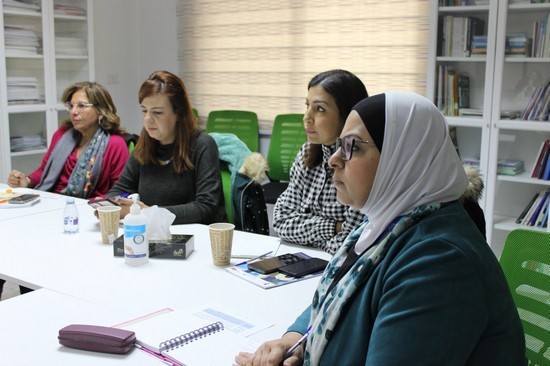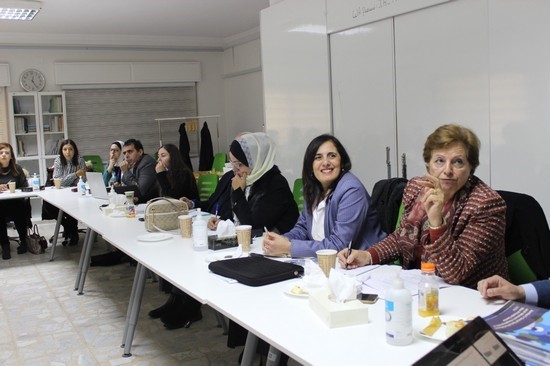AMMAN — The
Information and Research Center of the King Hussein Foundation hosted a
discussion session on Tuesday titled "Strengthening Maternity Protection
through the Social Security Law", with the participation of key decision
makers and representatives of civil society institutions, Jordan’s Senate, and
human rights organizations.
اضافة اعلان
According to a
press statement issued on Tuesday, studies carried out by the center have shown
that the rate of Jordanian women’s participation in the labor market decreased
by 13.7 percent during the last quarter of 2022, while the unemployment rate among
Jordanian women reached 33.1 percent.

In this
context, the center published a study, “Social security reforms in Jordan and
the employment of women in the private sector in 2020”, the results of which indicate
that over 75 percent of employers asked about the marital status of female job
applicants during interviews, and 25 percent questioned applicants about their
plans to have children in the future — factors that appear to contribute to low
employment rates among Jordanian women.

In the
statement, the Information and Research Center applauded efforts made by the
Social Security Corporation to provide social protection for female workers and
workers in general, and “all the protection measures taken to ensure that
working mothers and children, in particular, are protected”. It referenced Constitutional
amendments made in 2011, which stipulate the provision of legal protections for
mothers and children, and Article 44 of the Social Security Law, which requires
the provision of maternity benefits to pregnant employees.
Employment discriminationHowever, through 20 interviews with
human resources officials in various private sector establishments, the center
found that laws stipulating the provision of maternity benefits to employees
have played “a significant role in limiting women's economic participation”.
Over 75 percent of employers asked about the marital status of female job applicants during interviews, and 25 percent questioned applicants about their plans to have children
Often, it said, the private sector “refuses
to provide a job opportunity for a pregnant woman who does not meet the
requirements of Article 44 to avoid covering maternity leave at the expense of
the establishment in the private sector.”

In addition, the statement said,
labor-related legislation “is still far from providing the required protection
for motherhood and childhood”.
For example, the Labor Law lacks
provisions ensuring that maternity does not constitute a reason for
discrimination in employment, or appropriate measures to ensure that pregnant
or breastfeeding women do not have to do work that could be harmful to their
health or the health of their children.
The Labor Law lacks provisions ensuring that maternity does not constitute a reason for discrimination in employment
The Civil Service Law of 2020 does
state that a pregnant employee may not be assigned to do physical work harmful
to her health or pregnancy, however, according to the center, “this protection
does not include breastfeeding employees”.
 A call for
further change
A call for
further change"We need comprehensive amendments
that include healthcare subsidies for women and children and coverage for
diseases or complications resulting from pregnancy and childbirth costs," Hamada
Abu Najma, head of the Jordanian Center for Labor Rights, was quoted in the
statement as saying.
Professor Amal Haddadin, a legal
advisor to the Jordanian National Committee for Women's Affairs, said:
"The percentage of women's participation in the labor market in the Arab
world is 21 percent, and in Jordan, the percentage is less than that, although
the Jordanian constitution enhances women's economic participation in the labor
market.”
“Therefore, we must address Article 44
(regarding) maternity leave… to reduce the chances of (women’s) withdrawal from
the labor market."
 Proposed legal
amendments
Proposed legal
amendmentsThe experts in the discussion session
recommended making two amendments to the Social Security Law.
"We need comprehensive amendments that include healthcare subsidies for women and children"
First, they proposed that working
women should have a right to maternity leave for a period not less than
fourteen weeks, or at least the allow women working in the private sector equal
leave to those in the public sector (i.e. 90 days instead of 70).
Second, they proposed that, in the
event of the death of a mother, the father should be entitled to the remaining
period of maternity leave.
Read more Lifestyle
Jordan News










